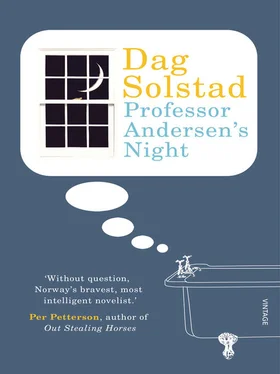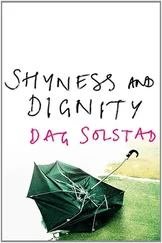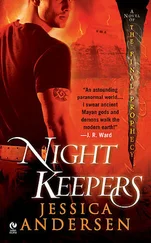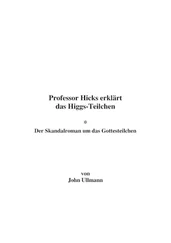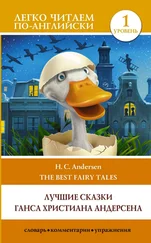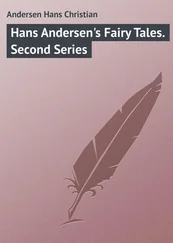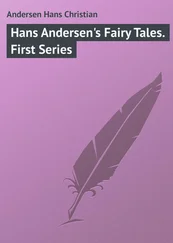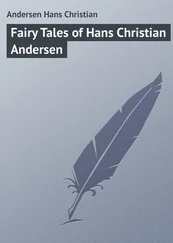Dag Solstad - Professor Andersen's Night
Здесь есть возможность читать онлайн «Dag Solstad - Professor Andersen's Night» весь текст электронной книги совершенно бесплатно (целиком полную версию без сокращений). В некоторых случаях можно слушать аудио, скачать через торрент в формате fb2 и присутствует краткое содержание. Год выпуска: 2011, Издательство: Harvill Secker, Жанр: Современная проза, на английском языке. Описание произведения, (предисловие) а так же отзывы посетителей доступны на портале библиотеки ЛибКат.
- Название:Professor Andersen's Night
- Автор:
- Издательство:Harvill Secker
- Жанр:
- Год:2011
- ISBN:нет данных
- Рейтинг книги:3 / 5. Голосов: 1
-
Избранное:Добавить в избранное
- Отзывы:
-
Ваша оценка:
- 60
- 1
- 2
- 3
- 4
- 5
Professor Andersen's Night: краткое содержание, описание и аннотация
Предлагаем к чтению аннотацию, описание, краткое содержание или предисловие (зависит от того, что написал сам автор книги «Professor Andersen's Night»). Если вы не нашли необходимую информацию о книге — напишите в комментариях, мы постараемся отыскать её.
Professor Andersen fails to report the crime. The days pass, and he becomes paralysed by indecision. Desperate for respite, the professor sets off to a local sushi bar, only to find himself face to face with the murderer.
Professor Andersen's Night
Professor Andersen's Night — читать онлайн бесплатно полную книгу (весь текст) целиком
Ниже представлен текст книги, разбитый по страницам. Система сохранения места последней прочитанной страницы, позволяет с удобством читать онлайн бесплатно книгу «Professor Andersen's Night», без необходимости каждый раз заново искать на чём Вы остановились. Поставьте закладку, и сможете в любой момент перейти на страницу, на которой закончили чтение.
Интервал:
Закладка:
Professor Andersen was in other words attached to his students, and to a much greater extent than they were aware. For he did not associate with them. After his lectures and seminars he shut himself away in his office, and spent his time there. But he was preoccupied with them, and he wasn’t unaffected by associating professionally with so much youthfulness and, in better days, such a potential harvest. But he kept himself at a certain distance, he had always done that, and it had become more and more important to him over the years. But his eyes roved in their direction, and he thought about them often. For one thing, in recent years several students had cropped up who had something unmistakably familiar about them. There were features he recognised, and there were characteristic ways of making gestures, or ways of walking; they were the children of his own fellow students. And then he couldn’t resist asking them whether it wasn’t by any chance the case that such and such was the son of H. S. …, or the daughter of H. Kj …, and if the answer was yes, he felt great satisfaction. Being childless himself, he therefore got a certain pleasure from seeing new students crop up whom he could link directly to his own student days, thirty years ago, and in a way also to his own life, and not least because he was capable of discovering the connection. But occasionally he was wrong. When he posed his question as to whether it wasn’t the case that such and such was the son of U … A, and the person in question didn’t affirm it as he had expected, but replied U … A, who is that? or No, my father’s name is N … B, then he became truly embarrassed, because, by doing this, he had tried to break into the intimate sphere of one of his students, which was how he then perceived it.
One afternoon at the end of February at around 3 p.m. he bumped into two of his students, two female students, on Karl Johans gate, right after he had left a board meeting at the National Theatre. He did that quite often, and he therefore stopped to exchange a few words with them. He asked them, because it was the done thing, how they were getting on with their master’s theses, but they both burst out laughing, saying that he mustn’t ask them today, because this was one of their rare days off. It turned out that both students worked in a wine bar when they weren’t studying, each in separate bars, or rather wine bars, and that they weren’t going to work until the next evening, and therefore were making the most of their liberty, strolling along Karl Johan in the pale, late-February afternoon sun, and they certainly weren’t spending any time discussing their master’s theses, instead they were discussing their customers in the wine bars, he understood them to say. ‘So you’re barmaids in your spare time, the two of you,’ said Professor Andersen, being friendly. ‘Yes,’ they laughed, ‘we’re barmaids.’ One of the female students suggested jokingly that Professor Andersen should come and visit the wine bar where she worked, he surely had time for a beer now and then, which made the other one equally eager for him to do so, the difference being that she wanted him to visit her wine bar, or pub, and not her friend’s. Professor Andersen noted down the names and addresses of both the wine bars, and promised, without committing himself, of course, that he would do his best, because to tell the truth his life was arranged with such foresight that he had time for a beer or two. They parted and continued in different directions, the two female students on their way down Karl Johan, and he himself on his way up it, where he went through the Palace Park, before walking up towards Briskeby and after that down the whole of Niels Juels gate to Skillebekk, a rather roundabout route, which he enjoyed taking because the days were lighter now and there was, as already mentioned, some afternoon sun, which warmed him a little in the middle of winter. ‘I really do believe I’ll do it,’ he thought to himself as he walked through the Palace Park. ‘Yes, why not?’ he added, as he walked up towards Briskeby. At the same time, he was a little startled that he was seriously considering what both he and the two girls had obviously regarded as a teasing suggestion, made in passing, while one exchanged some remarks because one had accidentally bumped into the other one afternoon on Karl Johan. ‘No, give over,’ he said to himself, while he walked down Niels Juels gate, ‘this town has hundreds of wine bars you could go to if you want a beer, and many of them are much closer to your house than those names and addresses you noted down just now,’ he added matter-of-factly, while shaking his head.
But he couldn’t stop thinking about the conversation with the two female students. He couldn’t stop himself going over and over it in his mind, when he was back home, and sitting in his study. There had been something merry about the two female students, which he couldn’t just drop. They had tried to lure him in for a joke. They had begun to compete openly about possibly winning his favour, full of laughter, as a joke. And he had willingly allowed himself to be lured, as a joke, and had written down the names of both wine bars and in that way made it clear that he had nothing against being the object of their rivalry, and that this really was something he would consider. There was an undertone that he, one fine day, in the not too distant future, would crop up unexpectedly at one of the wine bars, and it might well be that he would actually do it, too, thought Professor Andersen, elated. It was in the spirit of the joke. One could turn up at only one of the wine bars. If he visited them both it would seem rather silly, as they would soon find out and the joke would be spoiled, he would have punctured it, and in that way made himself look foolish in their eyes, in not understanding a joke. If he were to follow the joke properly, he had to choose one of the wine bars, that is to say one of the female students, and then he would have pursued the ambiguity of the joke right to its final conclusion, which would be when he, Professor Andersen, cropped up at the counter in one of the wine bars and sat down there and let himself be served beer by the chosen student. Professor Andersen was so roused by this thought that he got up out of the armchair in his study and paced back and forth in his spacious apartment while he gave himself over to the fanciful idea, trying to decide which of the two female students he would surprise by suddenly cropping up in the wine bar while she was busy at work, in the bar, and then sitting down at the counter and ordering a beer, with a knowing expression on his face, yes, on his whole person. For he would then have shown that he had understood, and carried out, a joke in accordance with its ambivalent message. He had to admit that he had, to put it bluntly, become captivated by this accidental meeting with the two female students, and friends, on Karl Johan. By the two girls’ joking insistence. By their closeness at the time. A spontaneous suggestion from two young girls. First one of them, out of the sheer joy of living, asked the professor to come and have a beer in the wine bar where she was a barmaid, and then the other joined in equally playfully, her throat full of bubbling laughter. Oh, he could imagine them now, all three, himself and the two female students who flocked around him, how they clamoured for his attention, threw back their heads and let out peals of laughter. If he had to choose, then he probably preferred the second one. Not the first one, even though it was she who had started the whole thing off, and who therefore could claim most of the honour for Professor Andersen being in such a frame of mind. Come to think of it, was it her, was that not the second one? It was after the second one joined in that the whole scene took on this strange innocence, bathed in an ambivalent light. If it had only been the first one, and the other one had remained standing a little self-consciously in the background, then the scene might easily have seemed rather blunt, and might have made him self-conscious, too. No, it was when the other one joined in and turned it into joking rivalry to win favour that it appeared to be pure and innocent, and the peals of laughter could trill out loud in Karl Johan, where they were standing, a professor and his two female students. So it was her he had to visit. Added to this judgement was also the fact that she, the second one, in contrast to the first, had been one of those he had seen with a gleam in her eyes in the seminar room at Blindern, when he had conducted the master’s seminar on Ibsen and managed to trace the stir caused by art from Ibsen as a final port of call, for us at least, all the way back to Greek tragedy in its mythical landscape, in what we call antiquity, although she, as a rule, kept quiet during the following discussions. On account of the gleam he had seen in her eyes, he had been attracted to her shyness, and therefore he had been all the more surprised when she suddenly bubbled over in a teasing, joyful mood and appeared to be her girlfriend’s rival in requesting that he favour her with a visit to the wine bar where she worked and not her girlfriend. He thought about the peculiar life she lived, her thoughts engrossed with the dramatic structures in Hedda Gabler during the day, and then acting as a raffish waitress at a bar during the evening. Thinking about this double life had the effect of making him intensely elated at the idea of paying her a visit in her bar, and in that way, within the bounds of a joke, sitting down at the counter and nodding knowingly to her, and that she would respond to this knowing nod by pouring him a ceremonial beer. Thinking of this forced him to sit down in his armchair and lean back, overwhelmed by this imagined agreement, which could become reality the moment he made up his mind to pursue the joke to its beautiful consummation. Professor Andersen didn’t know exactly whether he would actually realise this fancy, but having the possibility open to him made him light-hearted this afternoon at the end of February, which had now become a dark evening. He therefore made up his mind to celebrate, so to speak, his good mood by going out for dinner. He fetched one of his Italian suits from the wardrobe and changed his clothes. He would relish having dinner at a restaurant round the corner from where he lived. A Japanese restaurant, which had an elegant sushi bar on the ground floor.
Читать дальшеИнтервал:
Закладка:
Похожие книги на «Professor Andersen's Night»
Представляем Вашему вниманию похожие книги на «Professor Andersen's Night» списком для выбора. Мы отобрали схожую по названию и смыслу литературу в надежде предоставить читателям больше вариантов отыскать новые, интересные, ещё непрочитанные произведения.
Обсуждение, отзывы о книге «Professor Andersen's Night» и просто собственные мнения читателей. Оставьте ваши комментарии, напишите, что Вы думаете о произведении, его смысле или главных героях. Укажите что конкретно понравилось, а что нет, и почему Вы так считаете.
